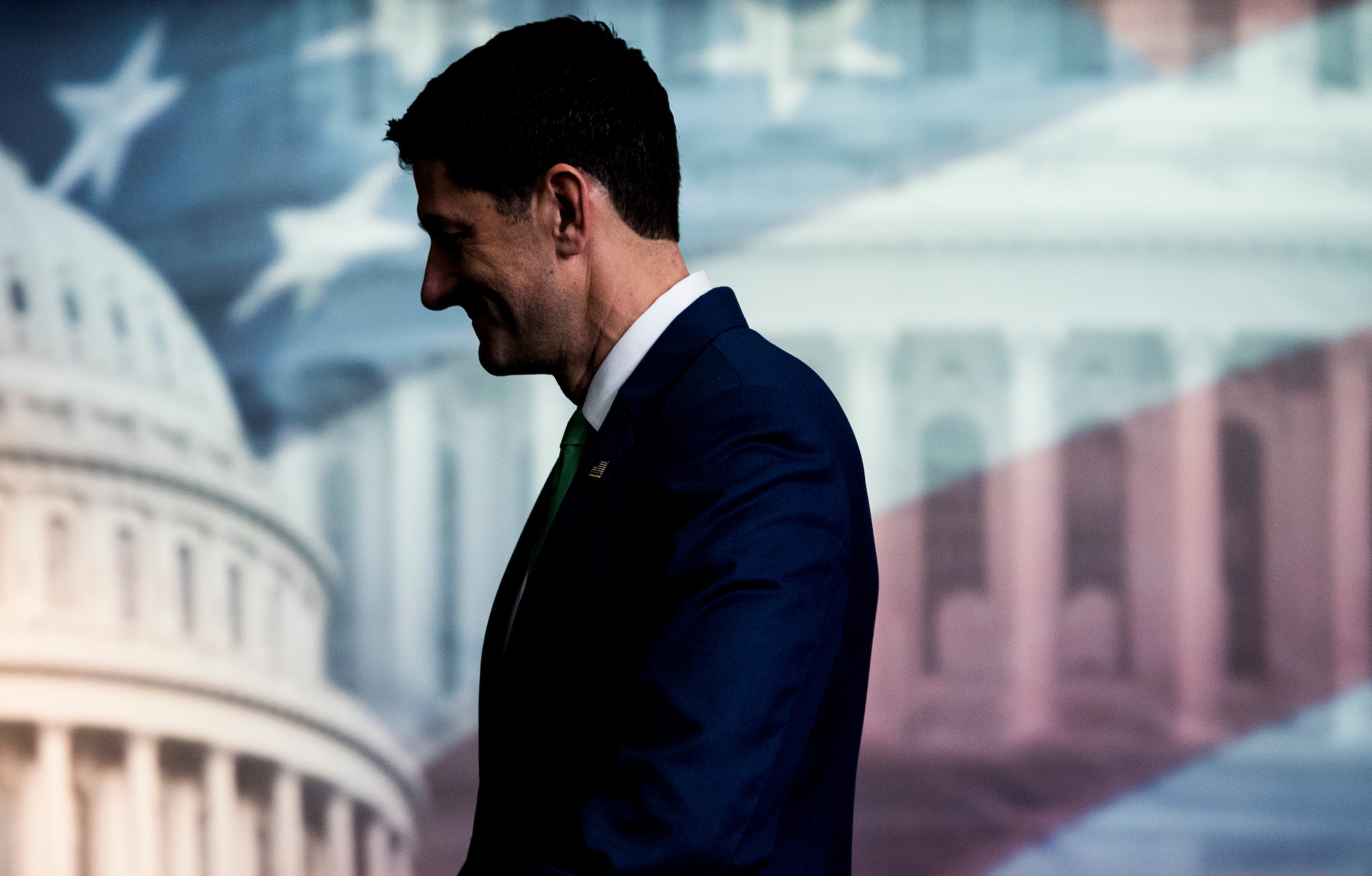Paul Ryan’s Broad Strokes on Poverty
Speaker reiterates favored outline on workforce development

Capping a visit to North Texas, Speaker Paul D. Ryan on Tuesday returned to a favored topic — federal anti-poverty programs — during a visit to Catholic Charities Fort Worth.
Coming off his appearance Monday before Southwest Airlines employees to tout the Republican economic philosophy, particularly tax cuts, Ryan offered a broad vision for workforce development policies rather than an idea of what Congress could actually move on this year.
The Wisconsin Republican on Tuesday reiterated his vision of consolidating the wide array of federal poverty programs into a benefit system that he argues would better encourage people to get out of welfare and into work, as outlined in the House Republicans’ 2016 “A Better Way” blueprint.
“I would basically break up the poverty monopoly,” Ryan said, noting that he wants to send some of the federal money spent on welfare programs to local governments and charities.
In addition to local government agencies, private-sector poverty fighters like Catholic Charities would get to manage welfare benefits and compete for federal dollars based on their record of success, Ryan said.
Watch: Democrats Have At Least 20 House Takeover Opportunities in These 4 States
“I’m not saying cut spending,” he added. “This will actually save money.”
Ryan said he wants to use both carrots and sticks to encourage people to get into the workforce.
A carrot would be expanding the Earned Income Tax Credit to childless adults, providing them with a benefit that “helps pull them into the workforce by making work pay,” he said.
Ryan then went on to talk about work requirements for welfare benefits — presumably the stick.
“In many cases the benefits have to be temporary,” he said. “They can’t last forever.”
Ryan said his public policy ideas have been inspired by private programs including Catholic Charities.
“The laws we’re trying to pass are designed to break down the stovepipes, break down the barriers and go after this poverty trap problem,” he said. “So we are looking at what’s working in the field, what’s working in communities and we’re trying to translate those lessons into public policy.”
Ryan alluded to changes Congress is looking to make to welfare programs such as food stamps but didn’t go into details. Bipartisan House Agriculture Committee negotiations over the farm bill have broken down in recent weeks because Republicans are insisting on adding work requirements to food stamps, now known as the Supplemental Nutrition Assistance Program.
The only other immediate policy ambition Ryan mentioned is a so-called evidence-based policymaking bill that he and Washington Democratic Sen. Patty Murray worked on together that would implement steps designed to improve data collection and analysis for federal agencies implementing policy.
The bill has passed the House but not the Senate, which Ryan noted is slow to act on a lot of legislation. Nonetheless, the speaker said he is “very confident” the measure will get signed into law this year.





